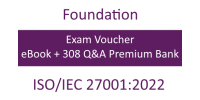The demands of customers today have changed both as a natural evolution and because of Covid-19.
And the new habits and expectations they’ve formed will not be undone in a hurry.
For example, the training and consultancy we do has moved almost 100% to remote working – and our customers prefer it that way. We, and they, have figured out how to train and learn virtually and it’s much easier now in terms of commuting, costs and location; essentially, we can do it from wherever we are.
This is a far cry from when I was working on the ITIL 4 Strategic Leader: Digital & IT Strategy publication, which required a flight to London for meetings. That was about the need for face-to-face collaboration, which is now just a video call away.
But the effects of Covid-19 aside, customers in any sector are increasingly moving to self-help: doing transactions or seeking customer service online and using self-checkout in physical stores rather than interacting with a human.
This has led to improvements in digital products, such as Zoom, over the past two years as we have grown to depend more on the technology. Achieving this has meant a greater reliance on development, delivery and quality improvement methods like Agile, DevOps and Lean.
But there’s equally a role for ITIL 4 in this evolution.
Complementary methods and skills
Modern ways of working such as Agile are no longer nice to have but a must.
Our business depends on the Scrum framework and, as a result, has become even more nimble in this digital world. All our remote teams connect daily and share how they’re working in support of the team’s larger goals. We generally work in short, two-week sprints. After each sprint, we share what went well, what didn’t go well, where we can improve as a team or organization and start the planning process over again.
These approaches help us stay aligned and get products and services into customers’ hands sooner. We have not yet found another way to do it as efficiently as this, it also gives us the capability to shift and change course quickly if we need to.
That said, ITIL 4 is complementary, providing a foundation, structure and consistency for how we work.
It ensures we have defined key practices and processes and maintain a clear focus on customer needs; not just building technology because it’s cutting edge but it’s what they want and need!
While ITIL 4 tends to help us more with daily operations and keeps “the trains running on time”, Agile, DevOps and Lean approaches enable us to create new, innovative solutions at a rapid pace.
Building broader knowledge versus tribal allegiances
While our business has embraced a variety of different methods and frameworks that are complementary, not everyone sees it that way. The mindsets in development and operations can still be at odds.
So, how should IT professionals avoid getting stuck practising one method – or belonging to one best practice “tribe” – to ensure they develop broader knowledge and expertise for themselves, their teams, and their organization’s benefit?
First, think about the problem you’re trying to solve for your customers instead of insisting you must use one, specific method. In other words, you don’t just wield a hammer when you want to build a bookshelf.
When you know what you need to achieve, then select from the range of tools that will get you there; but that requires a clear understanding of all the tools available.
If you find yourself part of a particular way of thinking, it’s helpful to understand other teams and the way they work, ask questions to get different perspectives, and gain a better insight into what your customers want.
Keeping a curious mindset is important because you can’t co-create value – as the ITIL 4 framework states – if you don’t understand more than one perspective.
Source: https://www.axelos.com/resource-hub | Author Erika Flora – President/CEO, Beyond20








